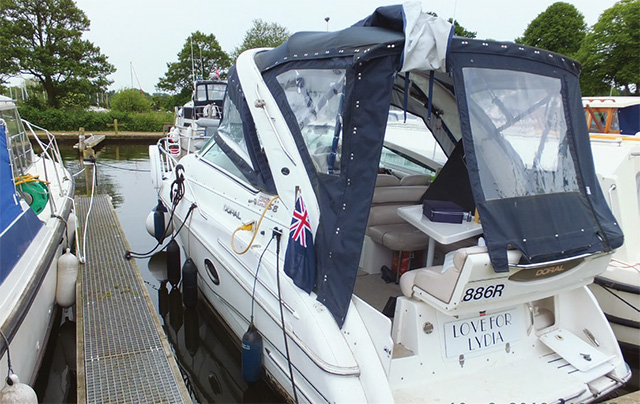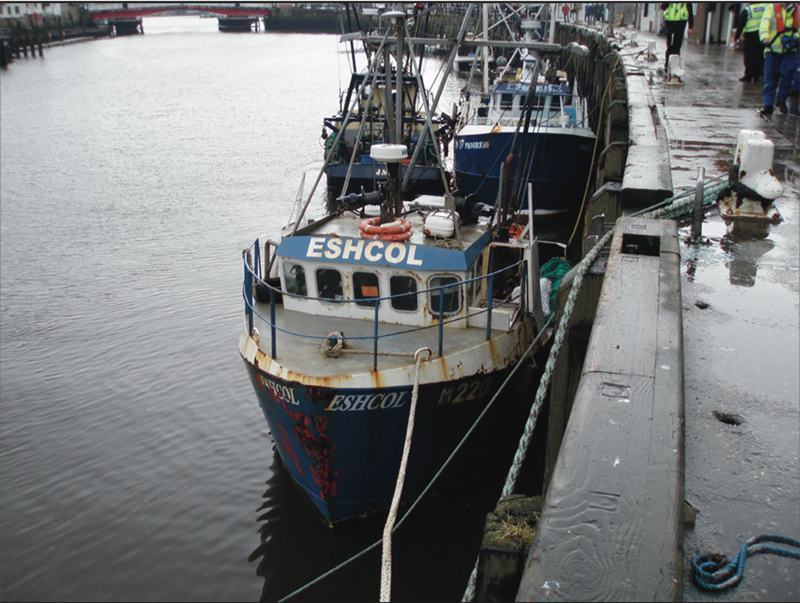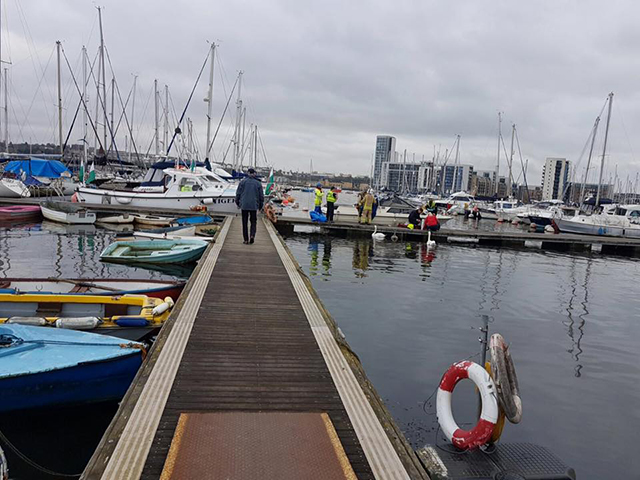Ignore petrol-engine exhaust fumes inside boats at your peril - it’s indicating your boat may be filling with carbon monoxide
If you can smell petrol-engine exhaust fumes inside your cabin or covered deck area, stop the engine, outboard or generator and get out, warns the Boat Safety Scheme (BSS) – you may not have any leeway to escape the threat of carbon monoxide (CO).
The call follows the publication of the Marine Accident Investigation Branch (MAIB) report into the circumstances that lead to two people dying from CO poisoning on their moored motor cruiser in Norfolk.
MAIB investigations found that exhaust fumes from running the engine could blow back into cabin and fill the space with deadly levels of the poison gas within seconds.
BSS manager, Graham Watts said: ‘CO is a colourless, odourless gas, hence the well-known silent killer tag, but you can smell the fumes from the exhaust, so that is why our advice is simple: if there are petrol-engine exhaust fumes in the cabin or enclosed crew area, don’t delay, stop the source, get to safety and ventilate the boat – hesitate and people could suffer.
‘The MAIB research and tests were eye-opening. Petrol-engine exhaust gases contain huge levels of CO and the investigation shows just how quick deadly levels of CO can develop.
‘Whether moving or moored, under certain engine-running conditions and-or wind conditions, CO can be drawn in or deflected into the boat.
‘Cockpit awnings can act almost like a funnel to channel petrol-engine fumes into the boat.
‘And in case boaters ignore, are asleep or cannot smell any petrol-engine exhaust fumes invading their crew space, boaters need the back-up of a working CO alarm certified to the BS EN 50291-2 standard.’
In June last year a man, woman and dog were found dead on their motor cruiser on Wroxham Broad which had its petrol engine running whilst on a mooring.
Five months later in November, another boater died and two fellow yacht club members were sent to hospital to recover after they too fell victims to fumes from an engine which was running on the moored boat.
Reports gathered in the last two decades indicate that at least 19 boaters have died and another 24 have had medical attention at hospital after inhaling the toxic CO in exhaust gases.
Carbon monoxide warning to boat owners following double tragedy
Two young men died when they left a gas cooker grill on to heat their boat
Boaters warned about the dangers of portable generators
Blunt warning about the dangers of using portable generators onboard from leading inland boat safety body
Warning after three rescued after carbon monoxide leak
The RYA is reminding boaters about the dangers of carbon monoxide after three men received treatment for the effects of…
Graham Watts added: ‘Safe boating is to understand and take control of all risks. This includes knowing about the CO risk and being able to recognise the symptoms of CO poisoning.’
The early signs of poisoning are like flu or food poisoning as the toxin begins to take effect: the symptoms include headaches, nausea and dizziness.
As time passes and/or the amount of CO builds, you may suffer chest pains and breathlessness leading to seizures and unconscious. So the speedy recognition of the initial symptoms is critical, and if the signs are ignored as the levels of CO build, the situation could get extremely serious.
- Avoid problems by staying alert to engine fumes – keep them out of the cabin.
- Run portable generators ashore and away from the boat, never aboard.
- Don’t run a propulsion engine when moored if the exhaust fumes are blowing back inside, even if your batteries are desperate for a charge. Wait until the wind changes for the better or move to a different mooring.
- Be a good neighbour and don’t run petrol engines where exhaust fumes could enter a nearby boat cabin.
These are the critical points:
- If you’re smelling and breathing in petrol-engine exhaust fumes, stop the engine and get off the boat.
- Know the symptoms of CO poisoning, if anyone is indicating they are suffering, get them medical help. If the symptoms are severe – call the emergency services.
- As a belt & braces defence, install a CO alarm certified to the BS EN 50291-2 standard, test it routinely and never remove the batteries
Graham Watts added: ‘Our records point to the fact that those new to boating may not be so aware of the CO risk as experienced boaters. If you know someone new to boating, we’d ask you to have chat with them about CO and point to the good safety advice on our BSS website.

Love for Lydia alongside a marina following the accident-canopy as found
Ten essential CO safety tips for boats
1) All the crew should know the symptoms of CO poisoning and how to react if it is suspected
2) Install fuel burning appliances properly, in line with makers’ directions
3) Follow servicing guidelines; maintenance should be routine and competent – Don’t allow bodged repairs, adjustments and adaptations
4) Always use appliances as per the instructions and never use cookers for space heating
5) Don’t block ventilation – appliance fuels like gas, coal, wood, oil, paraffin, etc. need sufficient air to burn safely
6) Don’t bring charcoal BBQs on board, or have them near a cabin during or after use – only stone-cold charcoal is safe
7) Keep petrol-engine fumes out of the cabin space or covered deck area, never use a portable generator in or near a cabin
8) Learn about the danger signs, spot potential hazards before CO occurs
9) Deal with problems immediately, never use equipment you suspect has problems
10) Install a certified CO alarm (BS EN 50291-2), test it routinely and never remove the batteries







